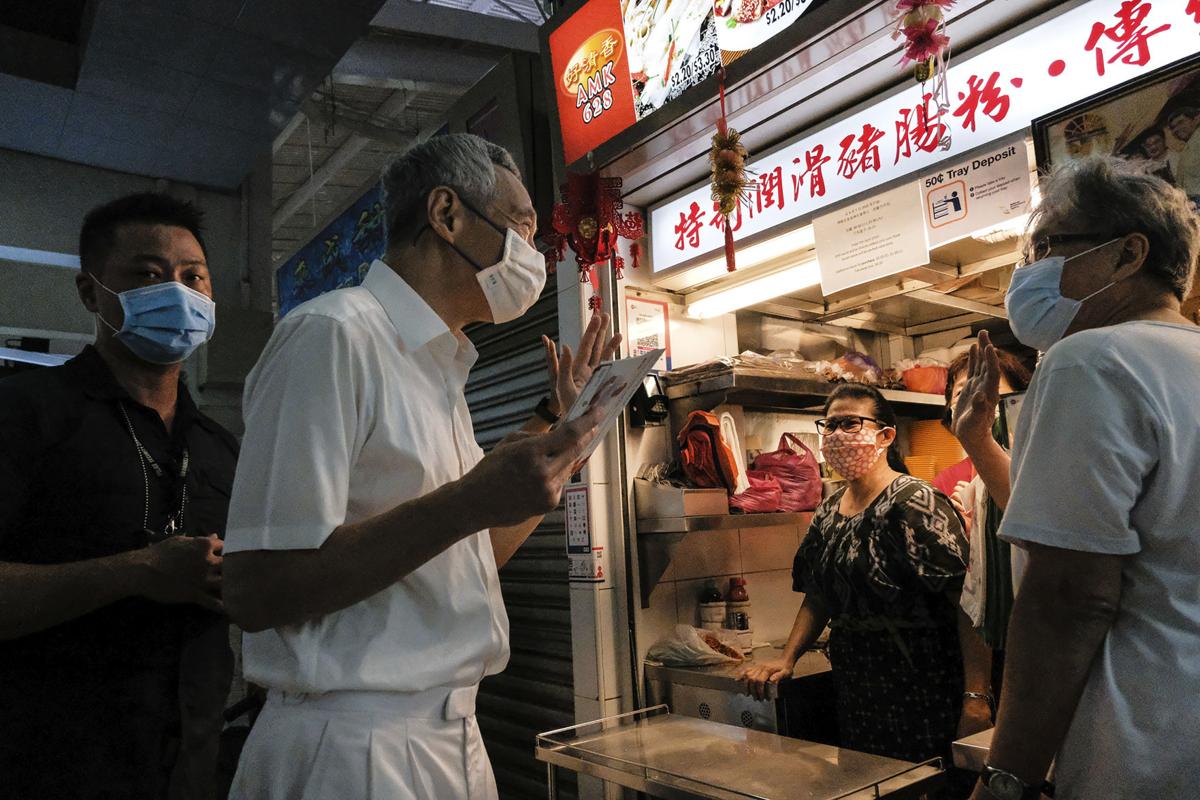Asia
Voting opens in Singapore’s pandemic-shrouded elections

Mask-clad Singaporeans started voting at 8 am (0000 GMT) on Friday in snap parliamentary elections being held even as the country deals with hundreds of new daily coronavirus cases.
After a short campaign in which public rallies were not allowed due to the virus, voters are having their temperatures taken and donning disposable gloves before entering booths to choose from 192 candidates representing 11 political parties chasing 93 seats.
The outcome is expected to be business as usual, with opposition parties appealing to voters not to issue a “blank cheque” to the ruling People’s Action Party (PAP), which took 83 seats in 2015 elections and has won at least 60 per cent of the popular vote in every election held since Singaporean independence in 1965.
The PAP is led by Lee Hsien Loong, prime minister since 2004 and son of the Lee Kuan Yew, one of Asia’s best-known politicians during the late 20th century, an autocrat who steered the tiny city-state toward prosperity.
But in late June, the prime minister’s brother Lee Hsien Yang shook up what would ordinarily be a staid campaign by backing the new Progress Singapore Party (PSP) – after a sibling squabble over the late Lee’s estate.
But Friday’s results will be mostly watched for the PAP’s margin of victory, with its candidates repeatedly raising the need for a “strong” government to deal with the novel coronavirus pandemic.
On Thursday the Ministry of Health confirmed 125 new cases, taking the total to 45,423.
Singapore’s gross domestic product contracted by up to 7 per cent in 2020, according to official projections.
“Our economy has been badly hit, though the full economic impact of the outbreak is still ahead of us,” the prime minister said in a final pre-vote statement.
Lee called on voters to “not just to return the PAP to government. But also to give it a strong mandate.”
Sylvia Lim, chair of the Workers’ Party, which won six seats in the last election held in 2015, said that “robust democracies where changes of the party in power at election time are considered normal” also dealt successfully with the pandemic, citing countries such as New Zealand and South Korea.
PSP leader Tan Cheng Bock called for a legislature that “that reflects all views, and not just the PAP view or the group-think of a single political party.”
Around 2.65 million people are eligible to vote before polling closes at 8 pm, with results expected from around three hours later.




 Davido's Net Worth & Lifestyle
Davido's Net Worth & Lifestyle 
